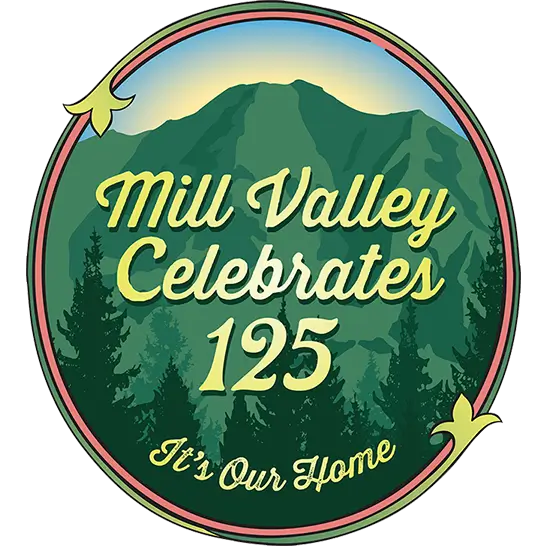Editions and Critical Resources
Editions
There are many editions of Twelfth Night and what you choose will depend on the content you want and the format. I tend to work with three editions: firstly, the Arden 3rd Series, which is the most scholarly and provides a comprehensive gloss on words, phrases and editorial choices; secondly, the Arden Performance Edition which is formatted for easy use while retaining some of the key glosses; and thirdly, the RSC version which is aimed at performers and has some very useful practical features, including scene summaries. I have also recently been introduced to the Bedford Shakespeare edition edited by Bruce R. Smith, which is invaluable in providing a wealth of contemporary source material under the headings Romance, Music, Sexuality, Clothing and Disguise, Household Economies, Puritan Probity, and Clowning and Laughter. I have given details of these below. There are other excellent editions (Folger, World Library, Cambridge, Penguin) all with something to offer.
The textual versions of Shakespeare’s plays, including this one, have always been fraught with editorial difficulty. Shakespeare did not oversee the printing of his plays. Some Quarto editions were printed during his lifetime but modern editors rely heavily on the First Folio editions produced in 1623, some seven years after his death, by his fellow actors, based largely on prompt scripts used in rehearsals and performances. Spelling and punctuation are pretty arbitrary – standardization of English did not start happening until Johnson’s Dictionary in 1755 – and some words or phrases are unclear.
This lack of a definitive early publication of the plays has engendered a massive industry of Shakespeare scholarship. I remember as a graduate student trawling through the massive Variorum edition of the Sonnets edited by H.E.Rollins, one of 22 volumes which remain a tribute to the well-paid industry of American Shakespeare scholarship.
Avoid editions published as part of a Collected Works, or available free or cheaply online (for example on Amazon), since the text usually predates modern scholarship and the notes tend to be either minimal or unreliable or both. Online versions are similar to the editions in Collected Works.
I include an edition of the Sonnets here because these remarkable poems so often shed light on the themes and meanings of the plays, and I will often make reference to them – for example, there are themes in Twelfth Night that echo sonnets 94 (They that have power to hurt) and 129 (The expense of spirit in a waste of shame).
William Shakespeare, Twelfth Night or What You Will, ed. Keir Elam, London and New York, Bloomsbury Arden Shakespeare Series 3, 2008.
William Shakespeare, Twelfth Night, ed. Gretchen E. Minton, London and New York, Bloomsbury Arden Shakespeare Performance Editions, 2020.
William Shakespeare, Twelfth Night, ed. Jonathan Bate and Eric Rasmussen, Basingstoke, Macmillan for the Royal Shakespeare Company, 2010.
William Shakespeare, Twelfth Night: Texts and Contexts, ed. Bruce R. Smith, NY and Boston, Bedford / St Martin’s, 2001.
William Shakespeare, Sonnets, ed. Katherine Duncan Jones, London and New York, Bloomsbury Arden Shakespeare, 2010.
In addition to the texts of the play there are various productions available on film. For Twelfth Night there are three filmed productions I enjoy, all very different. My favorite at the moment (because favorites change) is the Simon Godwin production for the National Theatre in London in 2017. It stars Tamara Lawrance as Viola, Phoebe Fox as Olivia, Tamsin Greig as Malvolia, and Doon Mackichan as Feste. My second favorite is the British ITV production directed by John Sichel in 1970. It stars Joan Plowright as Viola, Adrienne Corri as Olivia, Alec Guiness as Malvolio, Ralph Richardson as Sir Toby, and Tommy Steele as Feste. This production is exceptional for the measured enunciation of the actors, which in some senses is quintessentially British and very RSC. This is the one I use to get a clear sense of the tone of speeches in the play. I don’t always agree what the approach to a speech, but I am in no doubt about what the approach is. The third production, which was re-configured as a film, is directed by Trevor Nunn (who was also Artistic Director of the RSC for many years). Imogen Stubbs plays Viola, Helena Bonham Carter is Olivia, Nigel Hawthorn plays Malvolio, and Ben Kingsley is Feste.
One of the difficulties we face when we watch other productions is that they are reduced from the long original length in different ways, and what we see and hear does not always accord with what’s in our copy of the play. There is, for example, a tendency to switch the first two scenes in Twelfth Night in order to fore-ground the shipwreck. Of these three productions the most savage changes come in Trevor Nunn’s film, in which he transposes speeches, parts of speeches and whole scenes in order to take advantage of the film format. We might find, for example, bits of a speech in more than one act. It makes for a pacy rhythm but if we are following with a standard copy of the text we are likely to be tossed by a misruled sea and shipwrecked with no ship’s captain by our side.
A GREAT RESOURCE
Knowledge about Shakespeare is always useful, though the absence of evidence from his personal life has led to a proliferation of theories and speculations. The following website, managed by the Folger Library in partnership with others such as the Bodleian Library (University of Oxford), makes available a wide range of primary documents.
Shakespeare Documented: https://shakespearedocumented.folger.edu/
CRITICAL TEXTS
There are many discussions of Shakespeare’s work in general and individual plays in particular. The edition of the play you use will offer a bibliography and your local library may have its own selection. Twelfth Night is a favorite for literary critics, historians and graduate students, so there is no shortage of discussions. Here is a brief list of books and articles that includes some useful discussions of aspects of Shakespeare in general, such as the roles of popular culture and irony, and more particular discussions of Twelfth Night.
Mary Ellen Lamb, The Popular Culture of Shakespeare, Spenser, and Jonson, London, Routledge Studies in Renaissance Literature and Culture 2, 2006.
George Puttenham, The Arte of English Poesie, first published in 1589 by Richard Field, now available as a public domain e-book.
Clare Colebrook, Irony, London, Routledge, 2004.
Catherine Belsey, ‘Twelfth Night: A modern perspective’, Folger Shakespeare, 1993: https://shakespeare.folger.edu/shakespeares-works/twelfth-night/twelfth-night-a-modern-perspective/
Harold Bloom, ed., Twelfth Night: Modern Critical Interpretations, NY, Chelsea House, 1987
Linda Cookson and Bryan Loughrey, eds., Critical Essays on Twelfth Night, London, Longman, 1990
Baldassare Castiglione, Il Libro del Cortiegiano, or The Book of the Courtier, 1528, published in London in English, Italian and French in 1588.





